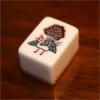In my opinion, if you want to make simple 2D games you can use C++ & SDL as suggested before.
I started learning java in college and when i came to C++ it just felt natural. If you comprehend what vectors are, object oriented programming, Cartesian plane, cicles, if...else, you might actually already have what you need to start developing games. If you want to take this C++SDL route i recomend you this page LazyFoo, very simple and very complete tutorials. Also check this youtube channel thecplusplusguy, again well explained and complete tutorials that takes you from starting your proyect to making a sidescroller game like Super Mario and more, the only thing about this channel is that this guy have a little "difficult" accent.
I hope this helps you, good luck.
I want to be an indie game developer, where do I start?
Allthough modern C++ does allow you to use it like a very high level language aswell (Which is reasonably easy), Just because the language allows you to mess around at a lower level doesn't mean you have to do it.
I'm not quite sure what you mean by "modern C++", but unless you have a GC system working behind the scenes, I'm pretty sure that you would still have to manage memory on your own. Right?
in my opinion the biggest problem with C++ for beginners is the quality of tutorials online (most of them are crap and will push beginners towards low level features of the language far too early or worse, teach them the unsafe C way of doing things before or instead of the safer C++ equivalents) and the unnecessarily obnoxious build model. (a very large number of beginner problems with C++ are related to the Linker, not the language)
Well, you have to know both (safe and unsafe) to make the distinction, and to see the benefits of one over the other. So, I think it's something that has to be covered, but not necessarily in a C++ tutorial; A good C tutorial should be used as a prerequisite.
If someone wants to start by learning a low level language they should imo start with assembly on a less complex platform than the modern PC and not worry too much about making games, If the goal is to learn how to make games then a high level language is the better option.
Absolutely! Upvote for you.
Teenager to teenager, I first started with a dream. A dream of an awesome game. That dream turned into a lot of writing - maybe about 100 pages of stuff about our game. Whilst designing, I picked up on Lua. After some coding of a basic engine, I though "Hey, this is way too slow for our expectations." So I ditched that engine, and went on to learning C++ as my first language. After reading a book in a month or so, I dove right in. I never thought once to start with something simple. For the past 2+ years I have been re-writing and writing new code from the first int main() I wrote.
I wouldn't say go brutal force on it, but definitely have a passion and enough effort. My friend wants to code with me, but lacks both.
I wouldn't say go brutal force on it, but definitely have a passion and enough effort. My friend wants to code with me, but lacks both.
[quote name='SimonForsman' timestamp='1348814946' post='4984635']
Allthough modern C++ does allow you to use it like a very high level language aswell (Which is reasonably easy), Just because the language allows you to mess around at a lower level doesn't mean you have to do it.
I'm not quite sure what you mean by "modern C++", but unless you have a GC system working behind the scenes, I'm pretty sure that you would still have to manage memory on your own. Right?
[/quote]
It depends on what you mean by "manage memory", with smart pointers and RAII memory and resources get deallocated when the object/smartpointer holding them goes out of scope so memory management then only really includes allocating memory (Which you have to do in C# and Java aswell).
Any good tutorials?
The one thing that tutorials can't give you is feedback - so post code on here at gamedev.net. There are tons of smart developers on here who will give you feedback.
There is also a "For Beginners" section on this site, check it out.
The only issue I have with online tutorials is that, as a beginner, you have no real way of discerning whether the information is correct or if you're being taught bad habits. That's not to say that there aren't great online resources out there, rather it would do you no harm to have a good quality, formal text book at hand and work through both in tandem.
If you are into 2D then my advice is to use lua-based LÖVE framework, it's just awesome for a rapid game prototyping. Lua is a simple language, so it would be easy to take a quick grasp of it. And there are many good open-source game projects written in Love2D. It's also cross-platform so you can release your games for Windows, Linux and Mac easily.
I also recommend LOVE, its far easier to work with, than any other engine out there(besides maybe Game Maker).
If you are into 2D then my advice is to use lua-based LÖVE framework, it's just awesome for a rapid game prototyping. Lua is a simple language, so it would be easy to take a quick grasp of it. And there are many good open-source game projects written in Love2D. It's also cross-platform so you can release your games for Windows, Linux and Mac easily.
I just want to say ALL of this information has been really helpful to me, and looking back to my original post I actually feel kinda nostalgic about this whole post.
Just to let you know, I experimented around a bit and am currently working on my first html5 game (although it is very basic)! Once again, thanks for all of your input, I can not wait to fully enter the world of game development.
This topic is closed to new replies.
Advertisement
Popular Topics
Advertisement





